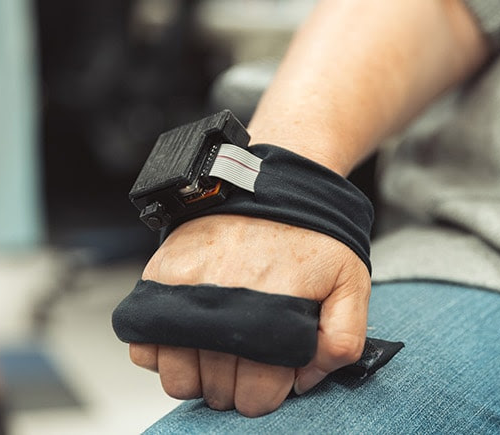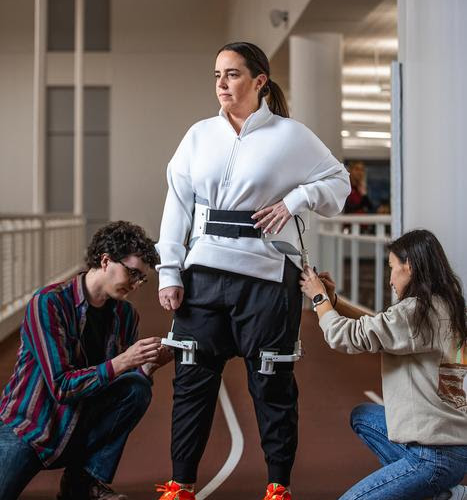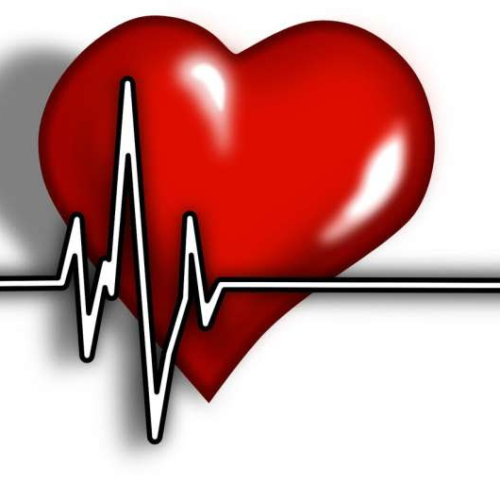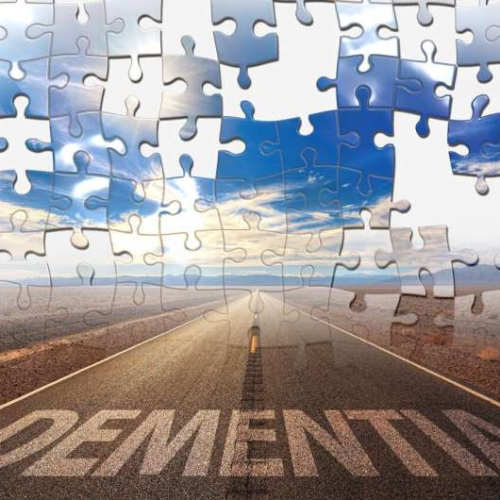Sarah Amandolare A new and deceptively simple advance in chronic stroke treatment could be a vibrating glove. Researchers at Stanford University and Georgia Tech have developed a wearable device that straps around the wrist and hand, delivering subtle vibrations (akin to a vibrating cellphone) that may relieve spasticity as well as or better than the...
Tag: <span>Stroke</span>
Robotic hip exoskeleton shows promise for helping stroke patients regain their stride
A portable robotic device created by UMass Amherst researchers provides new avenue for making state-of-the-art gait rehabilitation methods more effective and accessiblePeer-Reviewed Publication UNIVERSITY OF MASSACHUSETTS AMHERST MEGHAN HUBER WEARING THE HIP EXOSKELETON WITH MARK PRICE AND BANU ABDIKADIROVA (CREDIT: DERRICK ZELLMANN) Robotic Hip Exoskeleton Shows Promise for Helping Stroke Patients Regain Their Stride A...
Anti-cancer drug could improve symptoms after stroke
Peer-Reviewed Publication UNIVERSITAT AUTONOMA DE BARCELONA A study by the Institut de Neurociències of the UAB (INc-UAB) demonstrates in animal models the benefits of vorinostat after having suffered a stroke. The drug, used in humans to treat cutaneous T-cell lymphoma, has been proved to mitigate brain injuries and help in restoring brain tissue. Ischemic stroke...
Vagal Nerve Stimulation in Stroke: Benefit Out to 1 Year
Sue Hughes Use of vagal nerve stimulation in combination with intense physical rehabilitation in patients with chronic stroke led to improved hand and arm function, with benefits maintained out to 1 year, latest results from a randomized controlled trial showed. Study author, Teresa J. Kimberley, PhD, professor of rehabilitation science and physical therapy at MGH...
Tirofiban Reduces Early Neurologic Deterioration After Stroke
Intravenous (IV) administration of the antiplatelet agent tirofiban for 72 hours was associated with a reduction in early neurologic deterioration compared with oral aspirin therapy in patients with acute ischemic stroke, in the randomized TREND trial. The results were presented at the International Stroke Conference 2024, held on February 7-9 in Phoenix, Arizona. Lead author...
Vagal Nerve Stimulation in Stroke: Benefit Out to 1 Year
Sue Hughes Use of vagal nerve stimulation in combination with intense physical rehabilitation in patients with chronic stroke led to improved hand and arm function, with benefits maintained out to 1 year, latest results from a randomized controlled trial showed. Study author, Teresa J. Kimberley, PhD, professor of rehabilitation science and physical therapy at MGH...
In a clinical trial, blood thinners added to clot-busting medication did not improve stroke outcomes
by American Heart Association Credit: CC0 Public DomainGiving blood thinners in addition to clot-busting medications to people with ischemic strokes (clot-caused strokes) did not improve their outcomes 90 days later, according to preliminary late-breaking science presented today at the American Stroke Association’s International Stroke Conference 2024. These results are from the MOST (Multi-Arm Optimization of Stroke...
Active components of ginkgo biloba may improve early cognitive recovery after stroke
by American Heart Association Credit: Pixabay/CC0 Public DomainPeople with ischemic (clot-caused) stroke had better early recovery of cognitive function if treated with intravenous injections of a combination of biologically active components of ginkgo biloba during the first two weeks after the stroke, according to a preliminary study to be presented at the American Stroke Association’s International...
Stroke or stroke plus neck artery tear almost doubles risk of heart attack within a year, finds research
by American Heart Association Credit: CC0 Public DomainHeart attack risk almost doubles in the first year after a stroke or when combined with a tear in a neck artery wall; however, a tear without a stroke does not seem to raise heart attack risk, according to preliminary research to be presented at the American Stroke Association’s...
Research finds risk of dementia nearly three times higher the first year after a stroke
by American Heart Association Credit: Pixabay/CC0 Public DomainHaving a stroke may significantly increase the risk of developing dementia. The risk of dementia was the highest in the first year after a stroke and remained elevated over a period of 20 years, according to preliminary research presented at the American Stroke Association’s International Stroke Conference 2024, held...





